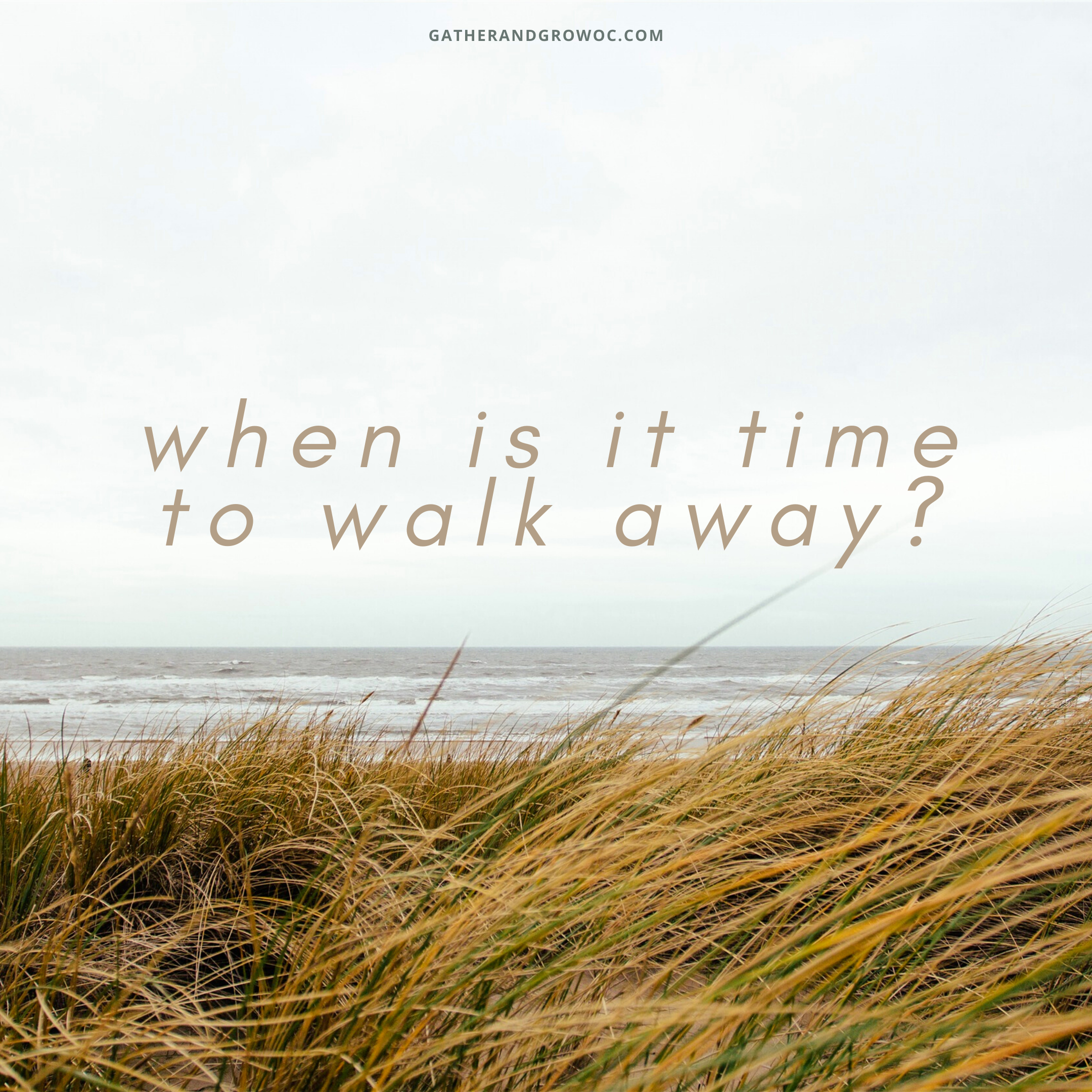When is it Time to Walk Away?
The majority of people find themselves in a poor relationship, at least at one point in their lives. It can be difficult to decide whether to continue trying or to walk away, and that is a decision I hope we can process together in session. Consider the steps below to help you evaluate your situation.
What are you looking for?
– Are you looking for a serious relationship? If not, then it likely isn't worth the extra effort for you and your partner. I know this seems obvious but there are a lot of people who enjoy being in a relationship but don't want to do the work when the waters get choppy. It's beneficial to recognize if you or your partner are one of these people because things are not likely to improve and you will both remain unhappy longer than needed.
Can you see yourself with this person?
– This is an example of when you need to listen to your gut. If you don't know how to do that, I usually suggest asking yourself the question you'd like to know the answer to and trusting the first answer that pops up in your head. This is also something you could seek individual therapy for to assist in getting back in touch with yourself. This is a practice we can do together in a safe, therapeutic setting where you can process without judgment.
(A word of caution, however, is that it is important to have some insight into your own relationship patterns when attempting to listen to your gut. If you tend to hold onto relationships longer than you feel you should or jump ship too quickly, these could be clues about your own attachment style (article to come!) that leads you to find particular types of relationships that are "familiar" to you.)
Does the relationship make your life better?
– This is a tricky question because there are many ways to interpret it. Some couple therapists believe each person contributes fifty percent to the relationship and others believe you are always in control as you have the choice to choose how you respond to each situation and if you stay in the relationship. I fall somewhere in the middle. I believe that when working on the relationship, each person will benefit more from focusing on the parts he or she can control. If your partner attempts to start a fight, you don't have to get sucked into that trap which ends in both of you feeling unhappy.
A positive example of this is reminding yourself of why you love this person and what keeps you in the relationship (we often forget this when we aren't getting along). On the other side of the coin, I also believe that each person contributes something to things going well or falling apart. If you ask your partner to be faithful or not do something that hurts you and they do it anyway, yes you can leave the relationship but that doesn't mean that person wasn't a jerk and contributed to the relationship failing. The split is not 50/50 nor 100/0 and you deserve to be in a relationship that moves your individual health in the right direction.
The reminder here is to have compassion for yourself and this process. None of this is black and white. Relationships are complicated and take time to figure out. Have compassion for yourself during this process. As a couples therapist, I meet too many couples who seek therapy as a last resort. Unfortunately, many of the issues have been plaguing the relationship for years and one or both partners have lost much of the hope needed for therapy to save the relationship. I never push clients to stay in a relationship that makes them unhappy long term but I am a believer that most relationships can be salvaged when both partners are committed to change and be happy. Remember, whether your relationship works out or not, you still have the ability to move forward on a path of contentment and happiness for yourself.







